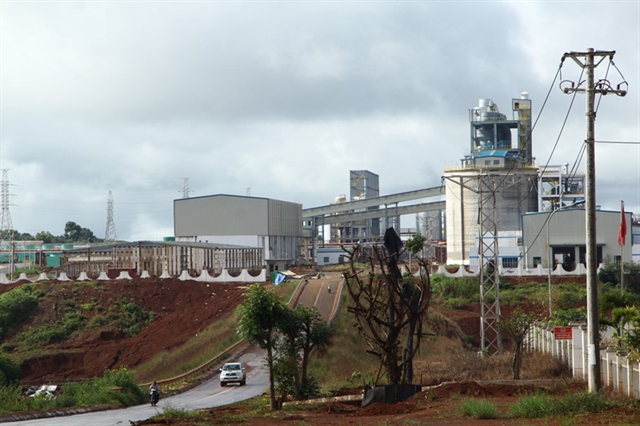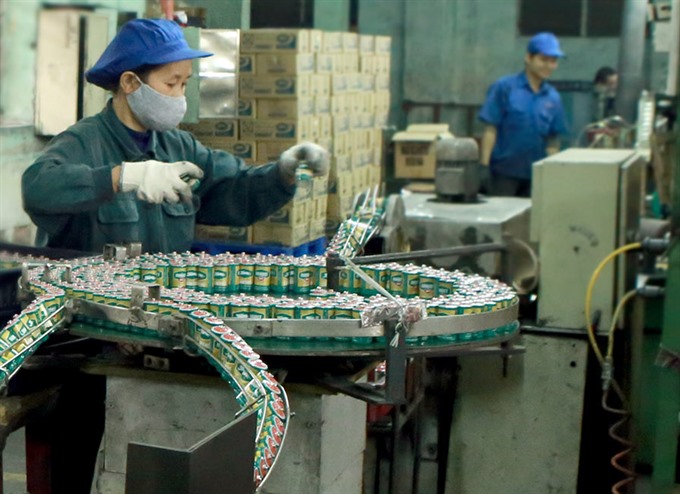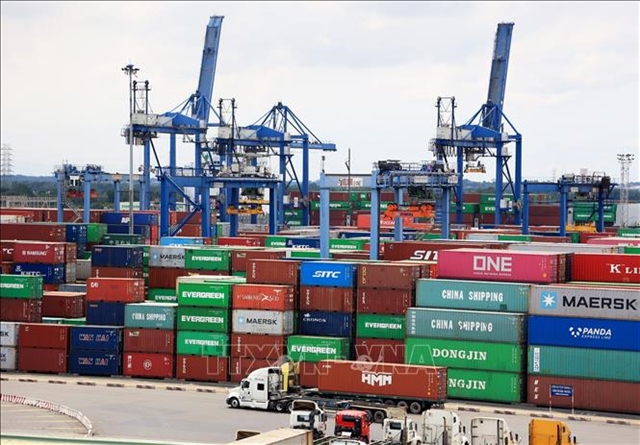 Economy
Economy

In order to create a fair business environment to promote the development of the private sector as what the Government has goaled in 2016-20 economic overhaul, experts said the restructuring of the State-owned enterprises (SOEs) must be hastened.
 |
| A production line at the Hà Nội Battery Joint Stock Company, a subsidiary of Việt Nam Chemical Group (Vinachem). The group says it is carrying out its restructuring plan and speeding up key production projects. — VNA/VNS Photo Hoàng Hùng |
HÀ NỘI –To create a fair business environment to promote the development of the private sector, experts said restructuring of State-owned enterprises (SOEs) must be hastened.
Vũ Tiến Lộc, Chairman of the Việt Nam Chamber of Commerce and Industry (VCCI) said that restructuring SOEs would create opportunities for the private sector, considered the driver for growth in the next phase of restructuring.
Lộc said at an economic forum held yesterday in Hà Nội that the work of privatising SOEs had been disappointing, despite being one of three major pillars of economic restructuring in 2011-15.
“Significant resources are still in the hands of SOEs. Privatisation must now focus on quality rather than quantity,” Lộc said. “This is important as privatisation and State divestments will create opportunities for private investors to buy stakes and become strategic stakeholders.”
According to Deputy Chairman of the National Assembly’s Economic Committee Nguyễn Đức Kiên, the Government encouraged the private sector to participate in the restructuring of SOEs without a cap on stake holdings for private investors, except in credit institutions.
The biggest challenge is implementing economic restructuring efficiently, given unpredictable global developments, such as Brexit, Kiên said.
Đậu Anh Tuấn, Head of VCCI’s Legal Department, said the picture of the private sector in Việt Nam remained worrisome, citing that more than 58 per cent of private firms were unprofitable.
Private firms were still struggling to access resources, especially loans and land, Tuấn said.
“A business environment in which firms of all sizes and from all economic sectors can access resources is critical,” Tuấn said.
Hasten privatisation
Đặng Quyết Tiến, Deputy Dirctor of the Corporate Finance Department under the Ministry of Finance said that the privatisation was slow compared to economic development.
“The stagnation is due to the failure to renovate corporate governance and a lack of accountablity,” Tiến said. “Privatisation is not simply selling stakes but a process in which SOEs will be renovated towards efficiency,” he said.
Director of the ministry’s Enterprise Development Department Hồ Sỹ Hùng questioned why stakes in many SOEs remained unattractive to buyers, citing that nearly half of 426 SOEs which implemented stake sales from 2011 to September 2016 failed to sell their stakes.
Dương Thanh Hiền, Deputy Director of the Debt and Asset Trading Corporation said that divesting from loss-making enterprises was difficult, adding that another problem was evaluating asset value.
According to Phạm Văn Thịnh, general director of Deloitte Việt Nam, investors still did not trust that enterprises’ assets evaluation process used international standards. In addition, there was a shortage of information provided to investors, causing transparency worries, he said.
Nguyễn Quang Thuận, CEO of Stoxplus said that enterprise information must be adequate and transparent to attract buyers. “Many foreign investors are keeping their eyes on the privatisation process and waiting for opportunities. The Government and SOEs’s determination is necessary,” Thuận said. - VNS

.jpg)


